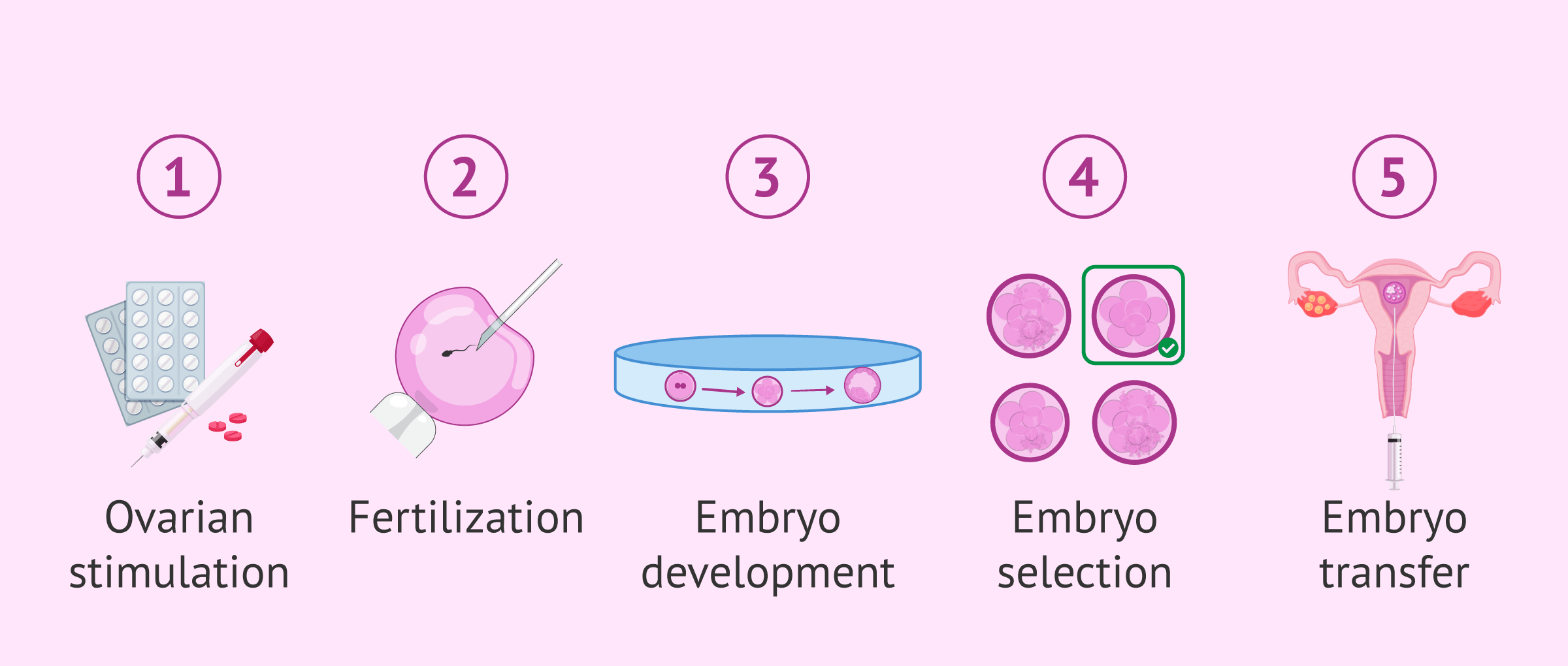In vitro fertilization (IVF) is a fertility treatment in which the woman is administered hormonal medication for ovarian stimulation to produce the development of multiple eggs.
These eggs will be fertilized in the laboratory, either conventionally or by intracytoplasmic sperm injection (ICSI). The development of the embryos in culture will then be studied and the embryos will be classified according to their morphology.
Those embryos with the best quality will be transferred to the patient's uterus so that they can implant and give rise to an evolving pregnancy.
Read the full article on: What are some of the main advantages of in vitro fertilization? ( 55).
By Elena Santiago Romero M.D. (gynecologist), Eric Saucedo de la Llata M.D. (gynecologist), Marta Barranquero Gómez B.Sc., M.Sc. (embryologist), Neus Ferrando Gilabert B.Sc., M.Sc. (embryologist), Zaira Salvador B.Sc., M.Sc. (embryologist), Michelle Lorraine Embleton B.Sc. Ph.D. (biochemist) and Romina Packan (invitra staff).
Last Update: 10/19/2022
